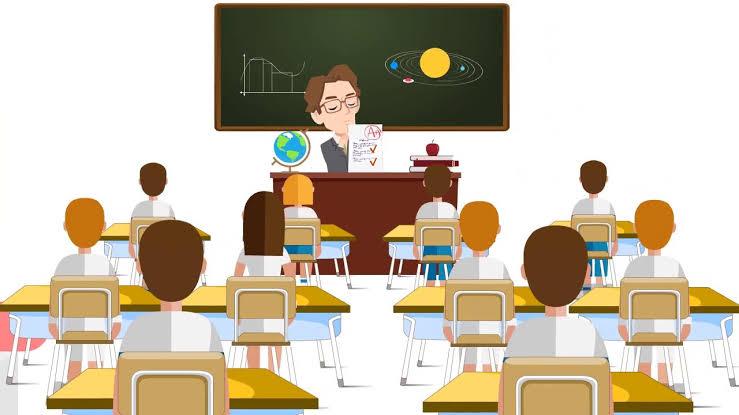Author : Veena Birje V
As the common adage goes, the future of a nation lies in the hands of its children and teachers, as mentors, who can mould India’s destiny into future leaders. They play a significant role in children’s lives by carving success into their careers and professions. They help to become a decent person, a better part of the society and an ideal citizen of the country.
Teacher’s Day is celebrated in appreciation of the struggles, difficulties and the unique role that teachers play in everybody’s lives. The Indian Teacher’s day is celebrated on September 5 to honour Dr. Sarvepalli Radhakrishnan’s birthday. He was a renowned author, Bharat Ratna recipient, first vice president and second independent president of India. He was born on September 5, 1888. He was a supporter of building up as an educator and was a respected emissary, scholar and a great teacher above all.
Even our Prime Minister Narendra Modi said “Teaching is not a profession, a way of life” and asked the teachers to understand the changes taking place around the world so that they could train the new generation to mould according to them. In fact, guiding and shedding light is a divine responsibility. He also said that India should regain the status of ‘Vishwaguru’ (educational leader) by paying high respect to teachers who inspire students to think critically about nation related issues. He said that “Teachers would shape the nation’s future with dedication and conviction as they lay the foundation and are the building blocks of the society.”
Teachers are nourishing and training students for their future as they are the true symbol of education and wisdom. They are the source of light in the world, which has been overshadowed by ignorance. Our teachers are real cornerstones of our growth. They help us to acquire knowledge, develop our skills, build trust and help us choose the right path to success. But despite playing such a critical role in the lives of students and nation-building, the respect they deserve is seldom seen.
The single and only constant is transition. As our young nation traverses towards development and advances our capabilities internationally, it becomes crucial to draw inspiration from our ancient heritage and cultural values in order to replace the current status quo with a new and innovative approach. New Education Policy, recently adopted, is a much-needed guiding light for cultivating our demographic potential. The policy aims at making “India a global Knowledge superpower”.
One of the policy’s stated aims is to instill a ‘deep-rooted pride” in being Indian, not only in thinking, but also in spirit, intellect and actions, as well as in developing awareness, skills, values and provisions that foster a conscientious commitment to human rights, sustainable development and living and global well-being.
Many stalwarts have made arguments towards a better education system for India from time to time. The British Raj had delegitimized the Indian system of education. Following the Minutes of Macaulay of 1835, the work of the colonial government in education was motivated primarily by self-serving concerns. While Western education was widespread among the Indians, it largely ignored scientific, technical and moral education. The Indian Reformers believed that a modern system of education was needed to keep up with the evolving times.
During the Round Table conference in 1931, Mahatma Gandhi, in one of his speeches said, “The beautiful tree of education was cut down by the British. Therefore, today, India is far more illiterate than it was 100 years ago.”
Following Independence, successive governments took several steps to decolonize the education system, including through the University Education Commission (1948-49) and the Secondary Education Commission (1952-53), the D S Kothari Commission (1964-66) and the National Education Commission (1968), among others.
President A P J Abdul Kalam stressed the need for a value-based education that promotes righteousness in a young age to make a cultured citizenry capable of transforming India into a prosperous, healthy, safe, happy and developed country. The National Education program was 34 years old, in place until now. To meet the New India’s expectations, a more fitting vision was needed. Since January 2015, there has been an unprecedented consultation involving nearly two lakh suggestions from 2.5 lakh gram panchayats, 6,600 blocks and 676 districts in committees established under the chairmanship of former cabinet secretary T S R Subramanian and eminent scientist K Kasturirangan, which was ultimately been successful in the NEP 2020.
NEP 2020 is an ambitious and innovative programme that provides children with opportunities to fine tune their talents by correcting the lacunae in the education system. Recognizing the importance of basic learning, the change from 10 + 2 framework to the 5 + 3 + 3 + 4- with base, preparatory, primary and secondary stages – would concentrate on a more comprehensive growth of the children. The emphasis on skills such as interpretation, critical thinking, logical understanding and co-curricular and vocational subjects will diversify their learning. Equal access will be provided at all stages of school education and it is implied that the two crore children who drop out will be taken back into the education system.
Under Prime Minister Narendra Modi’s visionary leadership, this well – thought out and forward-looking document will mark a significant milestone in India’s journey to become a global power house of technology. The Ministry of Human Resource Development returns to its original name Ministry of Education, thereby giving the educational environment a more focused and fresh perspective. NEP 2020 has been well received and ministers of education and dedicated teams are leaving no stone unturned to ensure its implementation in letter and spirit.
Kasturirangan, who is the head of the drafting committee strongly believes in the need for diversity in education. “Education cannot be in watertight compartments” anymore. A chartered accountant cannot just study finance. The panel felt that the various aspects and stages in a child’s education must be interconnected, like school to college to university education. There must be coherence for holistic learning. We can no more afford to be straight–jacketed .” Dr. K Kasturirangan told.
Prime Minister Narendra Modi has hailed the New Education Policy, saying that this will lay the foundation for 21st century India. Hoping the new Education policy 2020 will bring about a revolution in the education system and prepare our future generation for a new India.



NEP was long overdue. Finally the ball has been set rolling. We’re constrained to draw solace thinking it’s better late than never. Well written timely article. Happy teacher’s Day to all the teachers.🙏
Digital transforming , marching towards growth and development of the Nation
The new goals and objectives of Nepal’s must percolate down to school in villages as majority of children study in these schools otherwise it becomes another urbancentric dropout program
Value Based Education is Very Much needed, not only for the Personality of the Student but also for theTrue Prosperity of the Nation, itself !